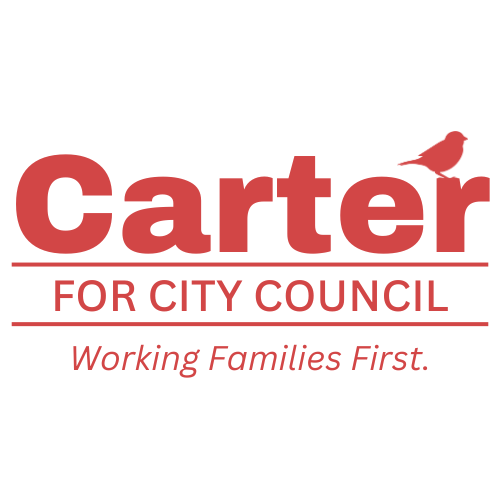Neighborhood Code
A number of folks have reached out about neighborhood code, and while I am not on the council yet, I wanted to share my thoughts, ideas on next steps, and feedback I have heard from neighbors in Ward 1. If you have questions or want to chat over the phone about this, please don't hesitate to reach out!
We need zoning laws to encourage affordability, livability, and the reality that over the next few decades we will see significant impacts to our way of life because of climate change. Neighborhood code isn't perfect, but to be fair to its proponents it does absolutely move us in the right direction and is a significant improvement to our current zoning which is inadequate for affordability, reducing pollution, preparing for climate impacts and more -- not to mention many of our residential buildings are already over built for their area. I do believe that preventing sprawl via infill is generally a good development strategy towards those ends.
However, public feedback has raised some legitimate concerns and unintended consequences. These are not impossible to overcome, but will take some work to mitigate / investigate.
In my view the city must address many of the potential unintended externalities of changes to zoning, including…
safe traffic management - I think expansion of resident only parking and safe walk/bike infrastructure is a good idea here
stormwater management - I don't know enough on this, which is why I'd want more information before moving forward. I would appreciate rough estimates on potential cost increases at various density levels and what the impact of increasing our tax base at those density levels looks like
infrastructure (roads, bridges, sidewalks etc.) - again I would appreciate even rough estimates on potential cost increases at various density levels and what the impact of increasing our tax base at those density levels looks like
inclusionary zoning protections - happy to talk more about ideas that are practical and effective
Investigate mechanisms to encourage homeownership for working families and those on a fixed income - happy to talk about this more too, there are really effective ways we could structure this.
What MOU we will end up with after negotiations with UVM - this is unknown at this point to my mind.
Some of my asks or wish-list items for information gathering may be very difficult for city staff to attain, delay the process unreasonably long because of a need for an outside consultant or other process, or are so lot by lot dependent that any estimates we get aren't actually that helpful. I just want to name that because I think it's a fair argument against some of my requests.
However, having requirements/mechanisms to beat back the gentrification of our city and preserve affordability for average people - aka inclusionary zoning and affordable homeownership provisions - is an absolute must for me. The fact that the UVMMOU is also not settled, and we don't fully understand how that impacts this conversation is a piece that is weighing on me pretty heavily as well.
Regardless of what happens Monday, I am committed to working on this issue and working with people from all parties + constituents to bring forward a concrete policy agenda reflecting the interests of working families and our environment.
What I have been doing to advocate for the Ward:
I am not on the council, and ultimately I don't have a say. However, I have been having one to one meetings with current city councilors as part of onboarding into my new role. I have been raising these issues with them. I have also been speaking with longtime affordability advocates, housing experts, climate advocates and constituents to understand this issue holistically.
I’ve tried and will continue to try and push folks across the political spectrum to really consider some of these pieces, even if they do come to the conclusion that it’s the right move to move forward with this on March 25th.
It seems there are three possibilities coming out of next Monday's council meeting…
1) We move it forward, and then we work to (and hopefully have the political will to) address the concerns I mentioned above.
2) We could push out the effective date as an alternative to pure postponement in order to get the big changes in the ordinance adopted, and have a real shot at addressing the concerns.
3) We postpone it all together.
Given all that and in the spirit of incorporating all perspectives, I like option #2 - I think it provides for the best chance of both passing big, important changes AND making sure our concerns are adequately addressed in a timely fashion. I encourage people to think deeply on this over the weekend and make your voice heard on Monday. Engagement from people is critical to policy development - politicians don’t have a monopoly on good ideas. We should engage and support our decision makers in making good decisions, even if we don’t all agree - that's the beauty of our democracy.
- Carter


